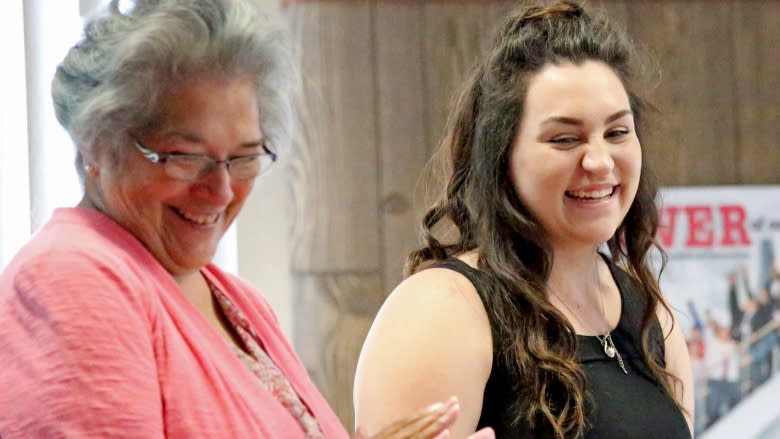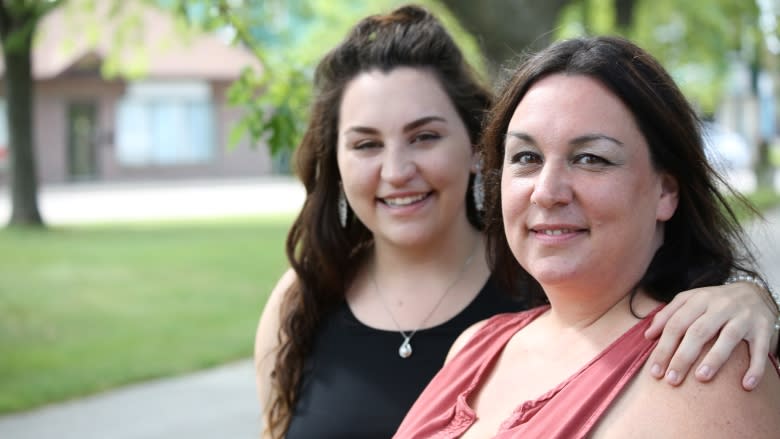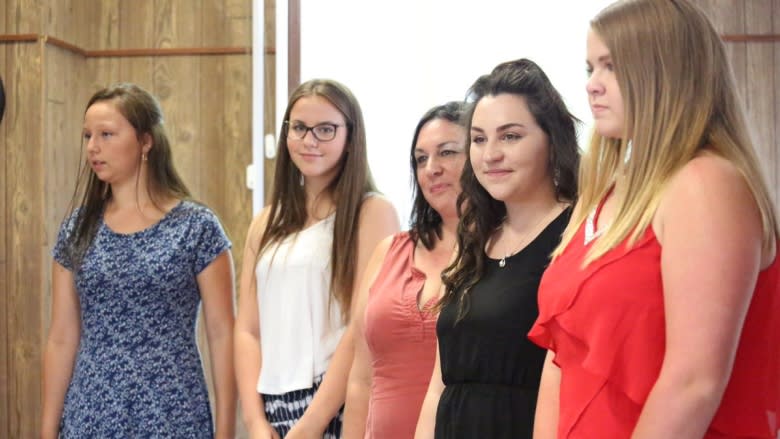Caldwell graduation ceremony inspires First Nation success
Trinity Fletcher stood shoulder to shoulder with her Caldwell First Nation chief and listened to just some of what she's accomplished so far in her young life.
Honour roll student, Ontario scholar, member of her school's leadership group — her academic record speaks for itself. Fletcher stood silently, looking at her family in the audience as Chief Louise Hillier reeled off her long list of achievements.
Fletcher was one of five students honoured during a special ceremony Thursday at the Caldwell First Nation office in Leamington. The event also highlights the importance of education in Indigenous communities with the graduates setting a shining example for those looking to pursue the same goals.
"It is inspirational seeing others accomplish things, especially because First Nations have that stereotypical 'dumb Indian' (label), so I just really want to show people that I can be whatever I want to be and they can't tell me that I can't," Fletcher told CBC News.
Like mother, like daughter
Fletcher has had plenty of inspiration to draw from in her household. Her mother, Natalie Fletcher, shared the stage with her Thursday after graduating from Western University, where she earned a masters of professional education in Aboriginal leadership.
Natalie focussed her research on Indigenous education systems in other countries. She may continue her studies by earning a PhD because she wants to look at more Indigenous education initiatives around the world.
This is her second time back at the Caldwell graduation ceremony, which invites graduates from several academic levels, including grade school.
Haley Wilson, Sydney Simpson and Claire Higgins — who are all heading to high school in the fall — were honoured in the ceremony as well.
Wilson was raised by her grandparents, along with her six siblings. For grandma, Shannon Wilson, the ceremony is an important part of the children's journey through school. They work hard and the recognition will keep them motivated, she explained.
"I was nervous for her because she's a very shy girl," Shannon said after the speeches were over. "She deserves it. She works hard. They all work hard."
For Natalie, being on stage with her daughter was a proud moment that brought tears to her eyes, just thinking about all the hard work she's seen Trinity put in over the years.
"You want to give your kids that opportunity and you want them to see you doing well and it is just huge to have her here with me and know that she is going places."
Setting an example
Three of the graduates said so long to grade school in the spring and will be heading into high school come fall. Honouring their work and having them see the successes of others has been a proven way to keep students motivated, explained Chief Hillier.
"It's important to recognize our students whether they are at the finishing end of their education or still in the learning phases of it," she said. "It's important they have that recognition and the encouragement to continue."
Hillier says the issue now is not so much trying to influence students to graduate, but finding the funding for them to do it. She says prior to government funding, the First Nation community set up a fund themselves for students who were not able to pay for post secondary education.
Natalie recognizes the hurdles Indigenous students have endured over the years. She knows what it's like to overcome those obstacles.
"It's nice to be recognized by your community and it's also nice to bring all your family here and to see everyone else that is graduating from your community," she said.





